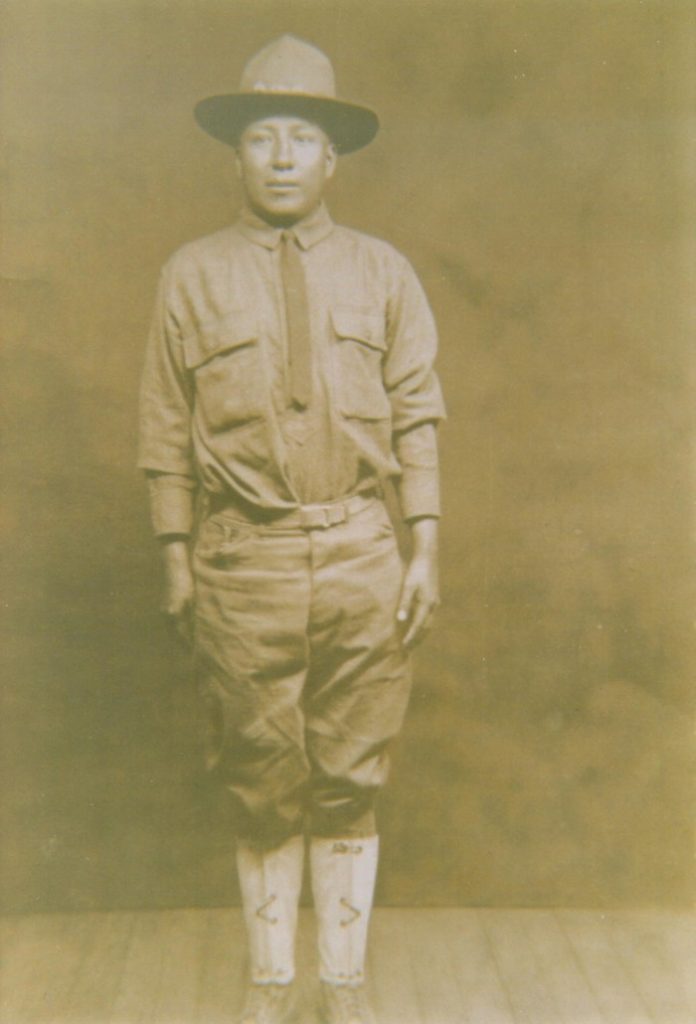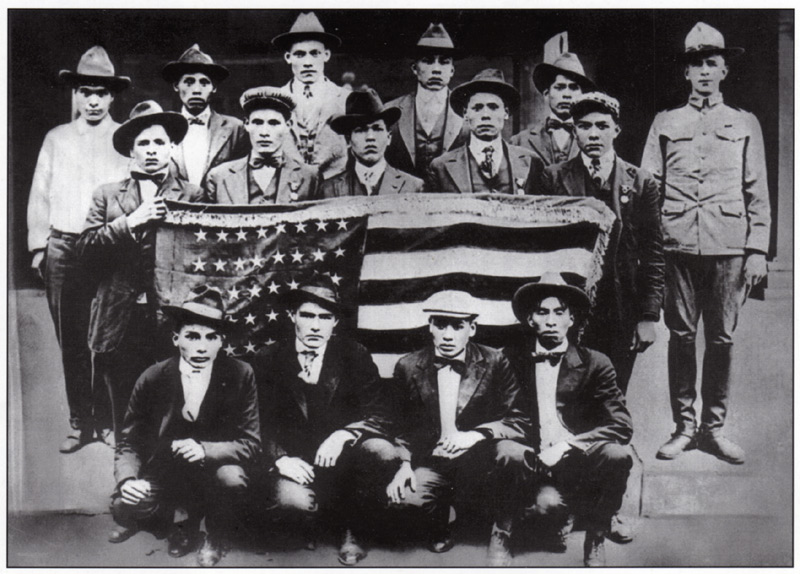July 28, 1914
World War I had a profound impact on the people of Oklahoma. Agriculturalists experienced a steep drop in prices for their goods, followed by a sharp increase as the Allies relied on their crops. Anti-war sentiment most prominent in the Green Corn Rebellion gave way to enthusiastic patriotism.
Oklahoma Native Americans were the first code talkers in both World Wars. In order to confuse the Germans and help transmit information securely, the United States used American Indians to relay coded information in their native languages. The first code talkers were a group of Choctaws in the 141st, 142nd, and 143rd Infantry Regiments of the Thirty-sixth Infantry Division in World War I. Through their efforts, major battles were won at St. Etienne and Forest Ferme, which contributed to the war’s end.
Read more about World War I and Oklahomans at the Encyclopedia of Oklahoma History and Culture.
View more about Native American Code Talkers from the WWI Centennial Commission and Choctaw Nation.



